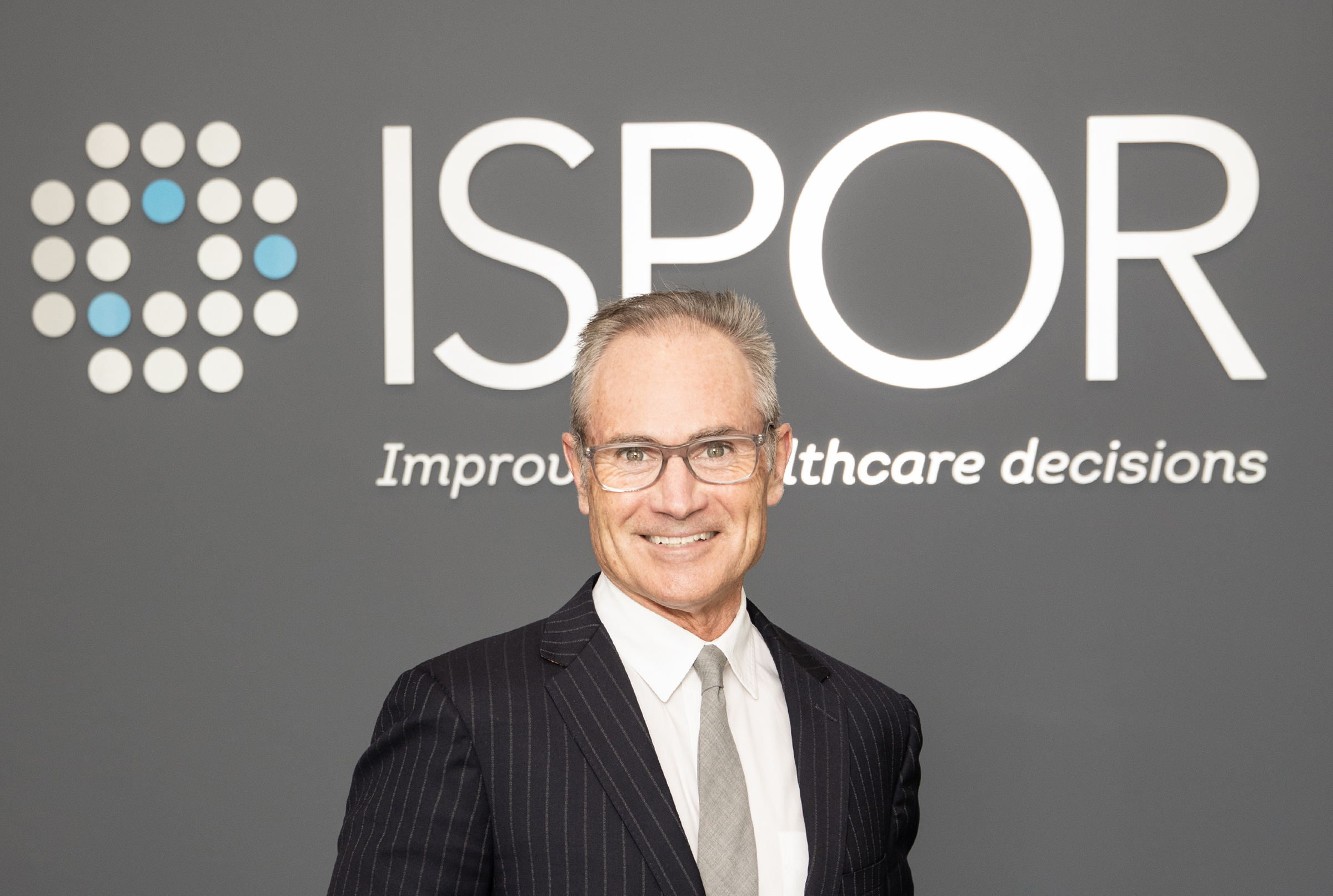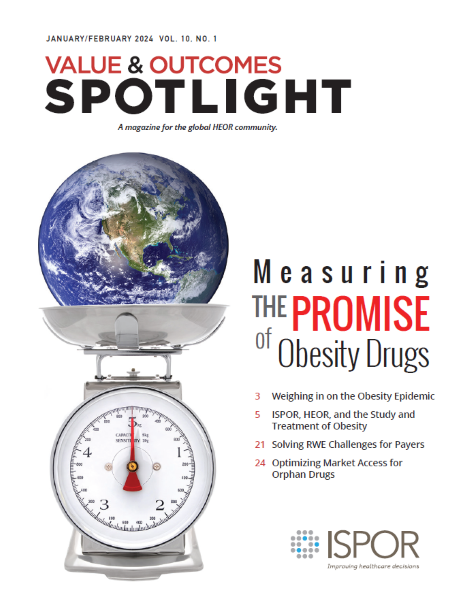ISPOR, HEOR, and the Study and Treatment of Obesity
Rob Abbott, CEO and Executive Director, ISPOR

Since taking office as ISPOR’s CEO in March of 2023, I’ve been immersed in an ongoing conversation with my staff, board, society members, and others about the overarching purpose behind our work. Put simply, “why do we do what we do?” While there is some understandable gradation in the responses, it is still possible to land on a common theme. We are united in our desire to use the scientific evidence provided by health economics and outcomes research (HEOR) to help provide the best healthcare to the largest number of people at reasonable cost. As healthcare systems globally struggle in the face of affordability challenges and increasingly complex reimbursement decisions, the availability of robust evidence to support good policy choices will become more important and relevant than ever before.
I’ve been thinking about this a great deal lately because while there are several markers of population health in the United States and elsewhere that have improved over the past several decades (life expectancy, the prevalence of smoking, and drug and alcohol use among youth come to mind), there is one area—obesity—in which we have not seen improvement. Many years before the word “pandemic” became ingrained in the public consciousness as a result of COVID-19, the World Health Organization (WHO) used it to characterize the alarming increase in obesity worldwide.i Today, the National Heart, Lung, and Blood Institute reports that nearly 3 in 4 adults aged 20 or older in the United States are either overweight or obese. The story is no better outside of the United States. In the United Kingdom, it is estimated that 28% of adults in England are obese with an additional 36% being overweight.ii Globally, the WHO estimates that 2.1 billion people are overweight or obese, and that 2.8 million people die each year as a result of excess weight.iii
In light of the above, I welcome this special theme of Value & Outcomes Spotlight. Obesity is a conspicuous public health problem and yet, until recently, it has been overlooked from a research and policy perspective. To be sure, there are complex physical, social, and psychological dimensions to obesity that make it difficult to “unpack,” as my philosopher friends would say. Still, this should not stop us from stepping onto this particular healthcare frontier. We know that unless we do so, millions will suffer. Obesity is associated with a sharp increase in the risk of developing chronic diseases such as diabetes, cardiovascular diseases, respiratory complications, and certain cancers. It is also associated with a reduction in both life expectancy by up to 10 years in those with severe obesity and quality-adjusted life expectancy.
So, how to move forward?
ISPOR stands ready to lead further efforts to both improve our scientific understanding of obesity, and equally, to translate that understanding into practical policy and regulatory advice. Our society has already taken some important steps in this regard. In November 2023 ISPOR hosted an educational symposium that cast the economic costs of obesity into sharp relief. Using data from Canada, the United States, Germany, and Sweden, the symposium was able to highlight both direct (ambulance, treatment, physician visits, hospitalizations, emergency care, and so on) and indirect costs (absence from work, carers, work disability, reduced working capacity) annually arising from the “treatment” of obesity. The numbers below show that indirect costs are often greater than direct costs.iv
Table 1. Direct Costs Arising From Obesity
- Canada: 6.0 billion ($CAD)
- United States: 30.3 billion ($USD)
- Germany: 4.8 billion euro
- Sweden: 2.2 billion kroner
Table 2. Indirect Costs Arising From Obesity
- Canada: 5.0 billion ($ CAD)
- United States: 42.8 billion ($ USD)
- Germany: 5.0 billion euro
- Sweden: 2.9 billion kroner
In addition to the educational symposium on obesity, ISPOR is actively participating as a working group member with our colleagues at the International Consortium for Health Outcomes Measurement. This work included a presentation of an obesity case study at ISPOR Europe 2023. ISPOR’s North American HTA Roundtable will be convening a special discussion at ISPOR 2024 on the assessment of GLP-1 products for obesity, and the international conference will also feature a workshop on valuing obesity treatments (application of generalized cost-effectiveness analysis). I should add that ISPOR’s Special Interest Group on Nutrition is also hard at work on economic insights into nutrition and the value of chronic disease management, including obesity.
As the articles in this special issue of Value & Outcomes Spotlight make clear, there is no easy answer to the challenges of obesity. Several factors contribute to it. These include food and activity; environmental conditions; genetics; health conditions and medications; and stress, emotional factors, and poor sleep. Still, the imperative to act is real. Quite apart from the human cost, there are very significant economic costs associated with obesity. HEOR evidence can help pinpoint where policy and regulatory interventions can be most efficient and effective in addressing this particular public health pandemic.
iObesity is defined as a body mass index of greater than or equal to 30, which corresponds to a weight of 221 pounds for someone 6 feet tall. The World Health Organization declared obesity a major public health problem and a global epidemic in 1997.
iiIn Europe more broadly, it is estimated that 35% of females and 39% of males will be obese by 2025.
iiiObesity is a leading cause of mortality (ranked #5 globally) and is, of course, linked to various comorbidities.
ivResearch from the United Kingdom reinforces these numbers. The annual cost to the UK health service and wider society associated with obesity is estimated to be £6.1 billion and £27 billion respectively.

